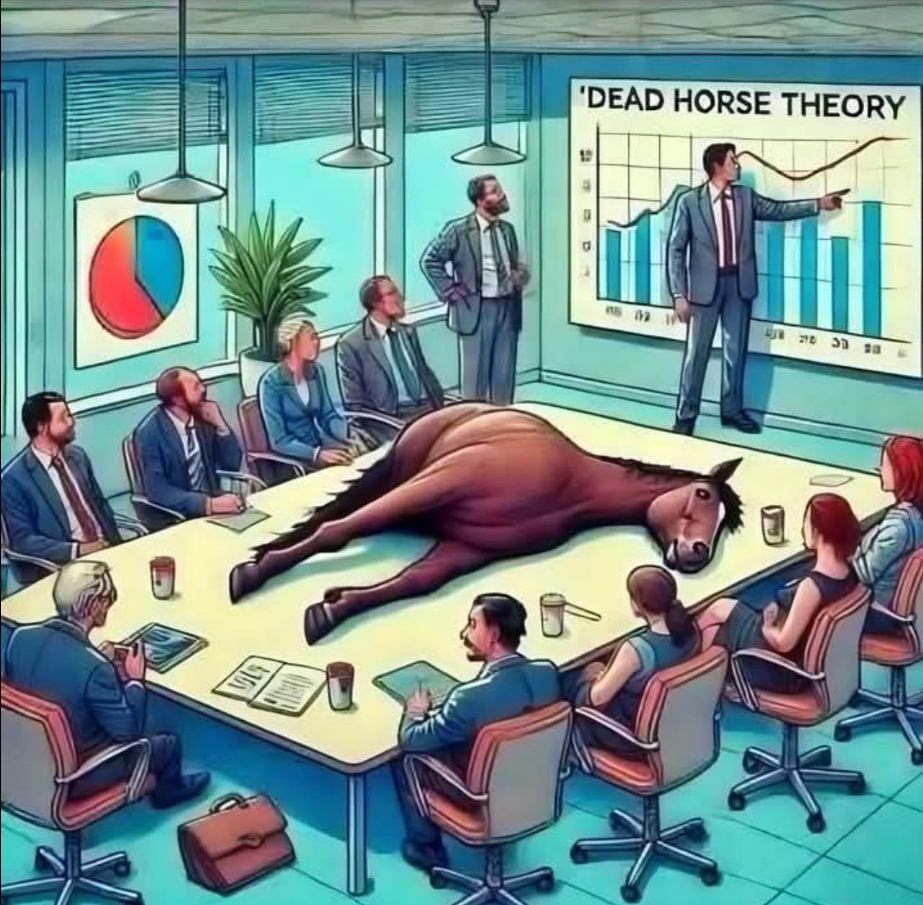The Weekly Reflektion 11/2025
Welcome to Reflekt’s Breakfast Seminar, Wednesday 26th March 2025 0800 to 1000 at the Quality Pond Hotel in Forus.
The main theme for Havtil in 2025 is Artificial Intelligence is also a risk factor. This theme and the depiction of the ‘black box’ in the Havtil film is the inspiration for our next breakfast seminar.
‘The black box’, can it be trusted?
Contact graeme.dick@reflekt.as, mike.pollard@reflekt.as, or post@reflekt.as if you would like to attend.
More details on our website www.reflekt.as
Breakfast will be served at 0730.
Sometimes an organisation becomes obsessed with a project that will never work, or a problem that can never be solved. Resources are committed, and efforts are made to revive something that is obviously dead. The management seem determined to keep on going despite the terminal setback. They adopt a denial state and stubbornly struggle on even though everyone else in the organisation can see that the best way ahead is to stop and accept the loss and embarrassment.
Do you cling to your dead horse?

Last week’s Reflektion was on the Hawthorne effect and the phenomenon where individuals modify their behaviour in response to being observed. Thanks for the feedback, and the suggestion to use the ‘Dead Horse’ effect in one of our Reflektions.
The ‘Dead Horse’ effect is a metaphor for the way individuals, companies, institutions and even nations, progress outdated ideas, carry on with doomed projects and tackle unsolvable problems. They cling to the believe that they can soldier on and succeed where the sensible approach is to stop, cut losses and find another way. The term ‘bureaucratic insanity’ is sometimes used in this context. The message is, ‘If you realise you are riding a dead horse, the sensible thing to do is dismount and walk on’. Alternative strategies for dealing with a dead horse are:
– Send out a memo to assure everyone the horse is not dead.
– Terminate the horse’s employment, without benefits.
– Buy a stronger whip.
– Replace the saddle.
– Change the riders.
– Harness several dead horses together to increase speed.
– Appoint a committee to study the horse.
– Appoint a team to revive the horse.
– Hire Reflekt to investigate and find out what the real problem is.
Another interesting approach is to promote the horse to a management position and obtain another horse, hopefully a live one.
On 2 May 1991, the Berlin Brandenburg Flughafen Holding GmbH (BBF) was founded and tasked with constructing a new airport for Berlin. The new airport would replace the Tempelhof, Schönefeld, and Tegel airports. On 28 May 1996, a commitment was made to build the airport at the Schönefeld site allowing the use of some of existing infrastructure. The planned opening date was October 2011. The project suffered from years of delays and budget overruns, finally opening in October 2020. Poor planning and management, corruption and scandals, fire safety failures, and design flaws and defects were among the problems that the project had to face. The cost of the airport had escalated from EUR 2.5 billion to EUR 7.5 billion. Following the opening in 2020, there were still issues such as low passenger numbers due to COVID-19 and lingering technical problems.
Many years and billions of Euros were spent on fixing the issues and on keeping the project alive. With the benefit of hindsight, it would have been more cost and time efficient to demolish the newly built facilities and start from scratch. It is however understandable that this was not done, bearing in mind that the horse was not completely dead, although it was receiving serious life support.
